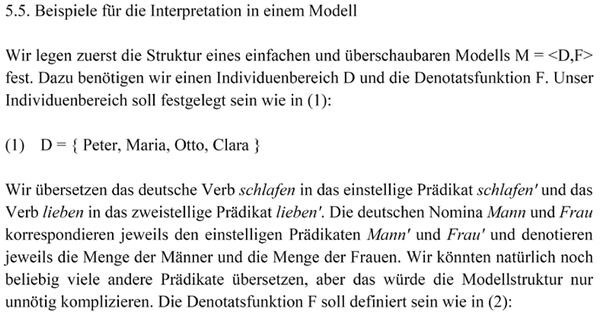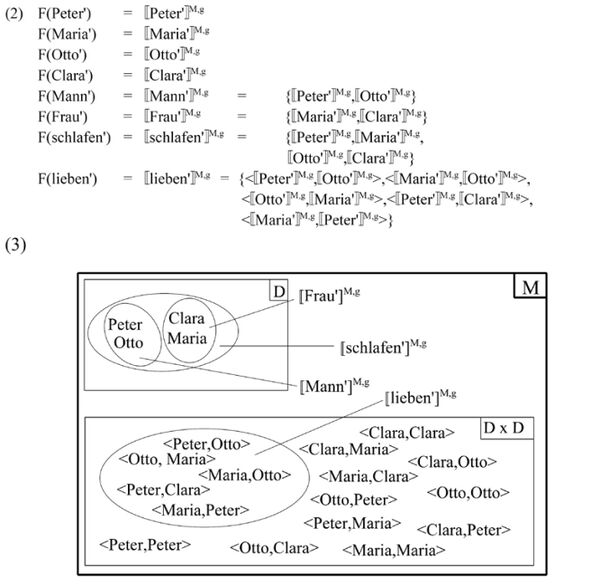Semantics 2: Difference between revisions
Jump to navigation
Jump to search
No edit summary |
|||
| Line 19: | Line 19: | ||
The models in Carnap are written in a different format from the standard format which you saw above, but the two notations mean'''exactly the same'''! Here is an example of a possible model in Carnap: | The models in Carnap are written in a different format from the standard format which you saw above, but the two notations mean'''exactly the same'''! Here is an example of a possible model in Carnap: | ||
[[File:Carnap-model.JPG | | [[File:Carnap-model.JPG | 100px]] | ||
In the standard format, this model would look as follows: | In the standard format, this model would look as follows: | ||
Revision as of 08:41, 28 January 2021
Exercises on Models
In this week's class, we introduced models in which to inpret the expressions of first order logic. Here is an exerpt from Lohnstein(2011) that explains the basics:
In order to practice the relationship between formulas and models, you are going to do 2 exercises. In the first exercise, you are supposed to create models that make a formula true and in the second one models that make the formula false.
You do the exercises on Carnap.
Models in Carnap
The models in Carnap are written in a different format from the standard format which you saw above, but the two notations meanexactly the same! Here is an example of a possible model in Carnap:
In the standard format, this model would look as follows:
M = <D, F> such that



